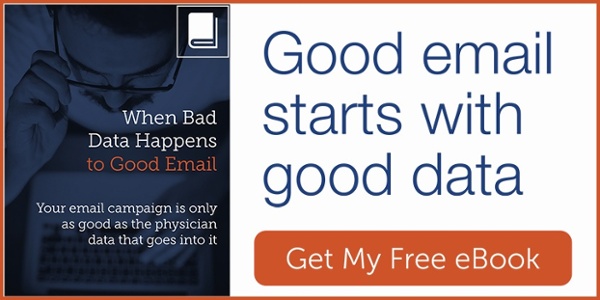
Even before the COVID-19 pandemic, HCPs were increasingly relying on digital channels to stay up-to-date in the healthcare industry.
I recently chatted with Regina Paris, VP of Engagement Strategy at Evoke, to discuss how brands are shifting to (and embracing) the vast opportunities of digital outreach, why qualified data sources are so imperative for achieving optimal engagement, and what is unique about HCPs’ digital behavior in the rare disease space.
The full text of our conversation is below.
Edith Hodkinson: Purposeful content and personalized experiences are driving forces for the work you do. How are you currently translating these forces to the omnichannel efforts of your clients?
Regina Paris: These forces are being translated in engagements such as case study challenges, virtual training for surgical or diagnosing procedures, and on-demand materials like podcasts and videos. They have shown strong performance and are simply integral to the HCP omnichannel landscape, especially during the pandemic. Engagements like this provide the means to improve the HCP’s practice needs, and–more importantly–reflects the content that they are interested in. Eventually, the brand is seen as a reliable resource, which is our ultimate goal.
EH: When it comes to planning omnichannel campaigns that need to be personalized, how much value do you put on a good data source?
RP: I place an enormous value on having a qualified and verified data source. Business objectives depend on it. Without that, we are unable to drive towards a solid activation and measurement strategy.
EH: Are you seeing new trends with regards to how brand marketers are engaging with physicians and other healthcare providers? What about vice versa: are physicians engaging differently and why might that be?
RP: In respect to new trends, the pandemic accelerated–as well as validated–what already needed to happen regarding reaching HCPs via online channels. HCPs are relying more and more on on-demand and online resources to stay up to date in their industry; and this was pre-pandemic times. But now, with pandemic restrictions, it is more than ever a necessity for marketers to shift their focus to non-personal promotion (NPP) and professional channels--including EHR and telemedicine pathways--to make their interactions more personalized and meaningful, and to treat this as a long-term solution.
EH: You have experience addressing the unique challenge of reaching physicians in the rare disease space. How do you think about and plan for engaging these physicians in digital settings-? How does data play a role in this?
RP: Data plays an extremely critical role in reaching physicians, especially in the rare disease space. Top of mind is where are they getting their information, what type of information are they looking for, and at what touchpoint?
Data plays an extremely critical role in reaching physicians.
It also enables target segmentation and identification of new segments. All this drives our activation, channel, and content strategy... all of which are key in driving disease-state awareness (DSA) and urgency for diagnostic testing.
EH: Looking ahead in 2021, how are brands planning to engage with their target audiences? Are there vast differences compared to past years, more subtle adjustments, or something else entirely?
RP: Brands are planning for the obvious shift to offer a more virtual and NPP channel approach as a means to reaching their target audience. Virtual conferences have become common asks, and brands are seeking ideas on how they can stand out among their competitors. They are also ramping up their CLM capabilities to drive more relationship-building, meaningful 1:1 interactions. I am also seeing clients taking on more risk in exploring telemedicine as a channel to activate their audiences. Studies show strong and long-term adoption among patients and physicians in this channel, and so brands are addressing accordingly.
Before the pandemic, brands would dabble here and there with their digital engagements and would more often than not see it as a “nice to have.” However, the pandemic has shined the light on digital engagements specifically, as an invaluable, necessary means to achieving and maintaining brand presence. It has also elevated the importance of rep tools.
About Regina Paris, Evoke

Regina Paris brings 20+ years of being a catalyst for building meaningful and creative digital engagement solutions, with 15 of those years focused on the pharmaceutical and healthcare industry. It’s her constant pursuit to keep breaking boundaries in a highly-regulated space by building more purposeful, personalized experiences for both the professional and patient audiences.
Engagement experience includes: Electronic Health Records • Patient-First Market Access/HUB eSolutions • Voice-assist solutions (Amazon Echo) • Gamification • Telehealth • Social media • Veeva iRep • SEO/SEM • CMS platform • CRM • Patient activation & adherence programs • Convention applications • Customer touchpoint engagement mapping • User experience/user flow best practices




